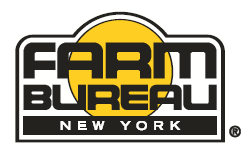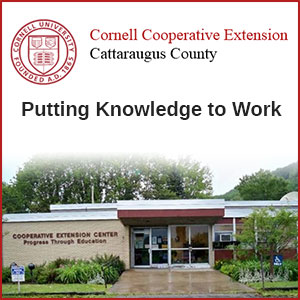Other Ag News: How to Prepare Your Yourself and Employees for an ICE/CPB Encounter
There has been a lot of concern among ag employers and immigrant communities in New York about recent changes in federal immigration policy and enforcement.
First it is important to note that many of the rumors of drastically increased ICE presence in NYS are not true. An article in the Dispatch (a right of center media outlet with high rating for fact checking) “Trump’s Deportation Dilemma” reported recently that despite “Cops-style raids in cities across America” actual arrests and deportations are actually in keeping with or below the levels during the Biden and Obama administrations. The article points out that the majority of ICE arrests occur in prisons and jails.
“Because ICE gets 90 percent of them when they are booked into jail, they don’t miss that many targets. Even adding nonviolent and minor offenses to the list of arrest targets, along with “collaterals” non-criminal illegal immigrants incidentally swept up in enforcement – the pool of potential arrests is difficult to increase with existing ICE capacities.”
ICE’s X account (@ICE.gov) stopped posting daily arrest numbers at the end of January and is now posting details about individual criminals who are being arrested and deported. This strategy – of making a story about an individual for greater effect – is a well-known communications strategy for heightening the emotional response and it has the added advantage of minimizing the fact that deportation numbers are nowhere near the President Trump’s administration stated goals. Currently there are currently too few beds to house detainees, too few immigration judges and too few resources and not enough manpower.
That said, given the concerns of the agricultural community about increased ICE and US Customs and Border Protection enforcement, and this Administration’s stated policy goals of removing unauthorized individuals and reducing illegal immigration to the US, knowing what rights you have as a business owner and what rights your employees have can be empowering. The New York State Office for New Americans and the Cornell Farmworker Program are offering information to help immigrants and employers know their rights and how to respond and be prepared for interactions with Immigration and Customs Enforcement (ICE) and US Customs and Border Protection (CPB).
Here is a summary of information provided by the New York Immigrant Coalition:
- You always have the right to remain silent and not answer questions. Any information provided can be used against you later.
- You always have the right to refuse searches of your home, person or belongings by law enforcement, unless a judicial warrant is produced. But do not physically resist or interfere with them.
- You do not need to show identification. But do not lie or show false documents.
- You have the right to request an attorney
- You have the right to record law enforcement, including ICE agents, as long as you are not interfering with them.
Within the 100-mile Border Zone (which covers much of NYS) Customs Border Patrol Agents have some additional powers. The publication Immigrants and Upstate New York by the New York Immigrant Coalition specifically provides information about your rights when stopped by CPB. CPB agents can:
- Can stop you and ask questions about your citizenship or immigration status.
- Can enter onto private land within 25 miles of the border
- But they cannot enter a home or dwelling on private land anywhere without a judicial warrant or consent and
- They cannot conduct searches without a legal reason or consent.
Tips for Employers
The National Employment Law Project and National Immigration Law Center have put together a publication ”What to do if Immigration Comes to Your Workplace” that can provide some guidance. Here are some key takeaways:
ICE agents can enter public areas of a business, such as parking lots or lobbies, without restriction. However, they cannot access nonpublic (private) areas without consent of the owner or a valid judicial warrant.
It is a good idea to train your staff to refer ICE agents to you and not to allow ICE agents entry to private spaces (including worker housing). A worker can say “I can’t give you permission to enter, you must speak with my employer.”
It is important to know the difference between a judicial warrant and an administrative warrant. A judicial warrant, issued by a federal or state court and signed by a judge, specifies the search’s scope and location, which may include a private area. Employers must allow access to areas specified in the warrant but can refuse entry to nonpublic areas beyond the warrant’s authorizing scope. In contrast, an administrative warrant, which is not issued by a judge, does not authorize ICE agents to enter private spaces without permission. It directs law enforcement to arrest or detain specific individuals suspected of immigration violations but does not impose a legal duty on individuals or employers to comply with ICE demands.
I-9 Audits of Workplaces
With the heightened focus on immigration enforcement, an increase in I-9 audits and compliance investigations is anticipated. The Immigration Reform and Control Act of 1986 (“IRCA”) prohibits employing individuals unauthorized to work in the U.S. and requires employers to verify identity and employment authorization. Federal law mandates that employers timely complete an I-9 form for each employee to verify employment eligibility. The Cornell Ag Workforce Development Program has resources on I-9 forms for employers, including a presentation on Authorization to Work and Enforcement on January 8, 2025 and recorded the video.
Some best practices in I-9 records management:
1. You need to keep I-9s the longer of 3 years after the employee hire date or 1 year after the termination date. Shred old I-9s that you don’t need to keep so they are not a liability to you.
2. Along with the I-9s you will need to provide payroll lists but you do not need to provide individual pay records or personnel files – keep the HR files separate to control the information that is provided.
Finally, the resource, Immigrants & New York, also from the New York Immigration Coalition provides resources to help immigrants, particularly those with families and children, prepare for possible interactions with ICE. Tips include, making a child safety plan and finding someone to care for your child in the event of an emergency; making copies of important documents (birth certificates, medical and school records, passports); finding a good immigration lawyer; and tips on how to respond if interacting with ICE.
The Cornell Farmworker Program works on improving the living and working conditions of farmworkers and their families in New York State and beyond: https://cals.cornell.edu/global-development/our-work/programs/cornell-farmworker-program
The New York Immigration Coalition advocates for the rights of all immigrants in New York State: https://www.nyic.org/
The Cornell Agricultural Workforce Development works on developing the people who feed our local families and the world: https://agworkforce.cals.cornell.edu/
The post How to Prepare Your Yourself and Employees for an ICE/CPB Encounter appeared first on Cornell Small Farms.
Signup for the Ag Newsletter
Get the freshest farm news, events and updates from in and around Cattaraugus County, NY at least once a month! Go signup!
Other ways to stay connected:
Get Involved in Farming
Resources for Starting a Farm in Cattaraugus County
Profile of Cattaraugus County soils
Agriculture Career Exploration
Questions about farming? Find out Who to Call











